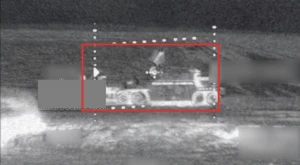
Invisible blood on Ukrainian flag
The most precious flag is the first one in your life. On the Ukrainian Flag Day, I recall this story, even though I have never seen that flag itself
My daughter had just been born; it was around November 1988. My mother told me in the morning that a blue and yellow flag had appeared on the club during the night. They quickly took it down and hid it, not informing the authorities, because they would have immediately found the "culprit." His name was Petro. He was my classmate and neighbor, who would occasionally drink heavily due to an unhappy love affair, and in the '90s, he ended up drinking himself to ruin.
Petro has long since passed away, but for some reason, his desperate act is still most closely associated in my mind with our flag. Later, after 1991, he and other men erected a symbolic rifleman’s grave near the church, and two flags - state and insurgent - stood freely under a birch cross, causing those who had recently taken Judas' money for snitching to the KGB to tremble with fear.
Petro also dreamed of a monument to Taras Shevchenko, but the village simply couldn't afford it, especially during such hungry times that brought demoralization and despair to Ukraine.
Money became a symbol of personal independence, overshadowing the independence of the Ukrainian state. The poor grew even poorer, while the party nomenclature from the Communist Party began collaborating with criminals and seized power. Total unemployment and other aspects of post-Soviet existence quickly extinguished Ukrainian patriotism. People like Petro had to endure complaints from those who couldn’t feed their children and had lost all their savings: "To hell with your Ukraine when there’s nothing to eat." He, too, was slowly sinking.
Ukrainian flags flourished everywhere, but none held the same significance as the first one that Petro risked his own freedom to raise over his native village on that dark, somber night. Despite the challenges, he did not lose hope; he occasionally met with me to inquire about the situation in Ukraine, even though I myself often didn't know or understand why things were going wrong.
His cousin became an activist in the city but not an MP. He fought for Ukraine alongside thousands of others who knew how to build a truly independent state, but they were pushed aside by post-colonial intellectuals and former dissidents. They could speak beautifully and passionately at rallies, something Petro, who trained as a driver, could not do. And then they were pushed aside or killed as well.
Power could now be gained with very large sums of money. Elections became easy to manipulate; they turned into a show. The Ukrainian flag now faced the backs of people who had turned away from it.
Both Maidans began with the same desperation as Petro, who did not live to see the second Maidan and died of a heart attack, but was present at the first. He continued to believe in Ukraine with a faith as steadfast as belief in God. It is thanks to people like him that we still have a state and have been fighting for ten years. Humble, inconspicuous, and unbuyable. They will not be remembered at celebrations because they do not dazzle with charisma and will not be called martyrs. They stand far from the podiums, choosing treacherous idols with their hearts rather than their wallets.
Their blood is invisible on our flags and thus unnoticed by the excited festive crowd craving bright events. Many of them have already passed away, never giving interviews to the media or recording their memories. They did not govern the country for all these 30 years and had little to boast about. Only the blood shed by their volunteer sons becomes visible and finally prompts the question: "Who raised these heroes?" Those who dared to raise the Ukrainian flag in the darkest hour, which only comes before dawn, so that people hurrying to work in the morning could see it, even if just for a moment, still half-asleep. When they returned from work, it was dark, and the flag was gone. They probably thought it was all a mirage. Only those involved knew for certain: those who raised our flag and those who took it down to protect the village. What if Ukrainian flags had been raised simultaneously in all villages back in 1988? But that could not have happened in 1988.
This exceptional event in the village with its unwritten history is no longer remembered. In the end, Petro doesn't care - he has long since gone to a place without sorrow or grief. But I would like to know where he got the flag from: whether someone gave it to him, or if he made it himself by buying blue and yellow fabric from different stores for the sake of concealment.
Exclusively for Espreso.
About the author: Halyna Pahutiak, writer, Taras Shevchenko National Prize winner.
The editors do not always share the opinions expressed by the blog authors.
- News














































